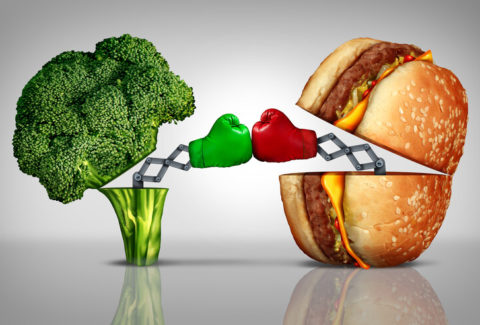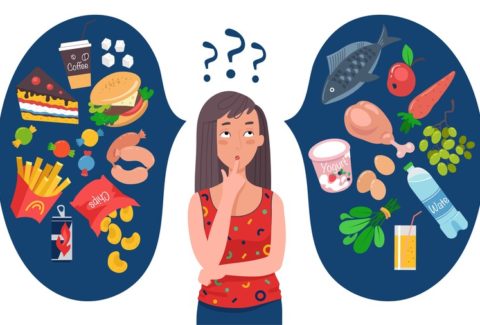The Opportunity Principle

The Opportunity Principle
The word “Opportunity” is defined as:
- A set of circumstances that makes it possible to do something
- A favorable combination of circumstances, time, and place [1]
- A chance of greater success
- A situation in which it is possible for you to do something that you want to do[2]
- A good chance or occasions, as to advance oneself[3]
The etymology of the word, “opportunity” is through the Latin word, “opportunus, “opportunitas” which means:
- “fit,”
- Convenient
- Seasonable time [4]
The word, “Principle”, on the other hand, means,
- A fundamental truth or proposition that serves as the foundation or a system of belief or behavior or for a chain reasoning
- A general scientific theorem or law that has numerous special applications across a wide field
- A general or basic truth on which other truths or theories can be based
- A basic idea or rule that explains or controls how something happens or works
- A proposition or value that is a guide for behavior or evaluation [5]
The etymology of the word, “principle,” is through the Latin words, “princeps,” “princip” which mean “first” or “chief.” Its etymology is also through the Latin word, “principium,” which means “source,” and the Latin word, “principia,” which means “foundations.”[6]
Looking at the definition of both words; “opportunity,” and “principle,” we can easily appreciate the ripple effect, the meaning, the ramifications, and the limitless nature of the Opportunity Principle. Through the meaning of both words, separately, we get to appreciate the significance, the magnitude, and the essence of the Opportunity Principle.
Simply put, the Opportunity Principle is the meaning of everything and of all things; and is the only meaning there is. In other words, nothing means anything other than what follows the Opportunity Principle. Stated in another way, it does not matter what meaning we give to anything, none of such meanings matter or mean anything unless the meaning follows the Opportunity Principle.
Everything follows the Opportunity Principle implies that:
- Nothing is good or bad
- Everything is neutral
- The neutrality of everything lies in the fact that everything is to be activated
- Things get activated either in a promoting or in an interfering way
- The only way we get to activate things in a promoting way is by seeing them through the lens of the Opportunity Principle
- Anything perceived outside the Opportunity Principle gets activated in an interfering way
- When activated in an interfering way, the interference leads to a ripple effect
- When activated in a promoting way, the promotion equally leads to a ripple effect
How does that work exactly? Might there be some exceptions? Are you implying that everything, including sickness, death, failure, a demotion, or getting fired is neutral?
And we answer: Yes. Not convinced? Then let us try this:
- Have you ever heard about someone who got sick, went to the doctor, they are diagnosed with a malignant tumor, that is still at its early stage, and that person’s overall life got saved?
- Have you ever heard about someone who is sick, stays home, rests, spends some time alone, reflecting; then returns to work, hands in their letter of resignation, goes and follows their passion, and ends up making a major contribution that their job would have never allowed them to do?
But what about death, you ask? Ok. What about it?
First of all, you do know that you do not really know that death is “bad” for the person who died, right? We hope you are wise enough to know that you cannot pretend to know that death was bad for the deceased.
Now, when it comes to the people who are mourning the deceased, do you happen to really know why they may be sad? Do you really believe that they are sad because someone died? Might you consider that they may be sad for reasons they, themselves, are not really aware of; but for reasons that they unconsciously and mistakenly associate to the death of someone? You may be saying, well, “they were not sad until that person died,” to which we will respond to you, “Well, the dog salivated[7] at the sound of the bell. Does that mean it is truly the bell that caused the salivation, to start with? Or, is it possible that the dog was conditioned to salivate at the sound of a bell?” If you fully understand Classical Conditioning[8] and Associative Learning[9] you will then understand how because the normal response to something is universal, it does not mean that thing is bad or good or natural. Rather, it may mean that we all have been conditioned to respond a certain way. Having been conditioned to respond a certain way does not remove the Neutrality Principle that is inherent in everything. And it does not remove the Opportunity Principle either.
Finally Why the Opportunity Principle?
- We are here to evolve, and to participate in the process of evolution of life
- Evolving entails experiencing, and experiencing involves learning[10]
- Learning entails contrast. Contrast means difference between what we desire or prefer and what we do not
- What we desire does not mean “good,” and what we do not desire does not mean “bad.” Yet, we all have both universal and unique desires and preferences; and they are not really based on “good or bad,” rather on choices
- The vast majority of our choices are unconscious[11]; and may interfere with our own evolution. Interfering with our own evolution is not “bad,” rather it is an opportunity
- The Opportunity Principle keeps everything, or brings everything back, on track because this is the only one and true meaning of each and everything. It’s like the homeostatic system of life
- With keeping and bringing back everything on track, the Opportunity Principle ensures the continuous process of evolution.
Are you ready to start applying the Opportunity Principle?
Then send your comment and questions.
[1] “Opportunity Definition & Meaning.” Merriam-Webster, Merriam-Webster, https://www.merriam-webster.com/dictionary/opportunity.
[2] Opportunity. OPPORTUNITY | definition in the Cambridge English Dictionary. (n.d.). Retrieved October 21, 2022, from https://dictionary.cambridge.org/us/dictionary/english/opportunity
[3] “Opportunity Definition and Meaning: Collins English Dictionary.” Opportunity Definition and Meaning | Collins English Dictionary, HarperCollins Publishers Ltd, https://www.collinsdictionary.com/us/dictionary/english/opportunity.
[4] “Opportunity (n.).” Etymology, https://www.etymonline.com/word/opportunity.
[5] Rey, Maestro Valle. “What Is Principle? Definition and Usage of This Term.” Philippine News, 18 Dec. 2020, https://philnews.ph/2020/12/18/what-is-principle-definition-and-usage-of-this-term/.
[6] “Meaning and Origin of the Word Principle.” Etymology, https://www.etymology-online.com/principle.
[7] McLeod, Saul. “[Pavlov’s Dogs Study and Pavlovian Conditioning Explained].” Pavlov’s Dogs Experiment and Pavlovian Conditioning, 1 Jan. 1970, https://www.simplypsychology.org/pavlov.html#:~:text=Pavlov%20showed%20that%20dogs%20could,an%20unconditioned%20(innate)%20response.
[8] Clark, Robert E., Joseph R. Manns, and Larry R. Squire. “Classical conditioning, awareness, and brain systems.” Trends in cognitive sciences 6.12 (2002): 524-531.
[9] Shanks, David R. The psychology of associative learning. Cambridge University Press, 1995.
[10] Ibrahim, Mike. “Your Best Self: What It Means to Evolve as a Person.” LinkedIn, 31 Mar. 2021, https://www.linkedin.com/pulse/your-best-self-what-means-evolve-person-mike-ibrahim/.
[11] Max-Planck-Gesellschaft. “Decision-making May Be Surprisingly Unconscious Activity.” ScienceDaily. ScienceDaily, 15 April 2008. <www.sciencedaily.com/releases/2008/04/080414145705.htm>








